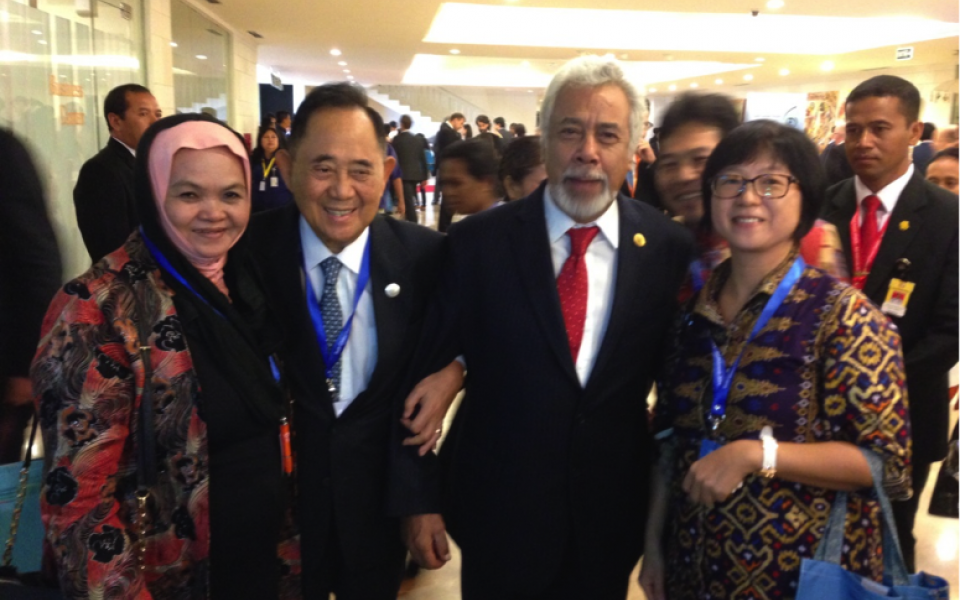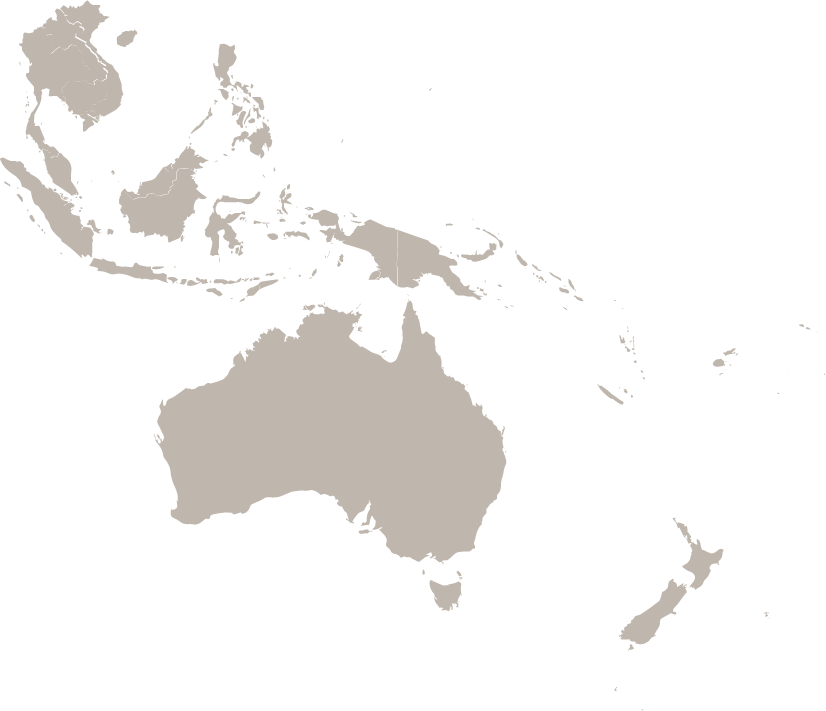
Potre with Philippine former Speaker of the House of Representatives Jose De Venecia, Xanana Gusmão (Prime Minister of Timor Leste), and Ms. Tokuda Yor Ching Poon (International Country Head of Global Peace Foundation Indonesia).
Potre Diampuan, URI’s SEA-Pac Regional Coordinator based in Manila, Philippines, attended several high level United Nations (UN) events this month that took her from Mindanao in the Philippines to Bali, where she was also able to meet with several Bali-based Cooperation Circles (CCs).
The 6th Global Forum of the United Nations Alliance of Civilizations (UNAOC) was held in late August with the theme “Unity in Diversity: Celebrating Diversity for Common and Shared Values.”
URI SEA-Pac was the only civil society organization to have joined the Philippine Delegation, which included government officials and members of the Office of the President of the Philippines, the Department of Foreign Affairs, and the National Commission on Culture and the Arts.
UNAOC aims at bridging the cultural divides and creating mutual understanding and respect among diverse cultures and religions. August 28 was a pre-event dedicated to youth. One hundred youth participants (40 youths from different countries and 60 youths from Indonesia) converged to discuss “The Role of Youth in Promoting Unity in Diversity through Education, Media, and Migration.”
After the UNAOC event, Dr. Diampuan, along with her husband, Haji Eshmael Diampuan, visited two Cooperation Circles in Bali Indonesia: Ashram Gandhi Puri and Ahimsa Satya Karuna.
From Nusa Dua in Bali, the Diampuans drove to the village of Bedulu to visit Dr. Diane Butler, a friend of URI through Monica Willard at the United Nations in New York.
Dr. Diane Butler and Suprapto Suryodarmo co-founded International Foundation for Dharma Nature Time, to support intercultural dialogue through sharing in the arts, religiosity, and nature. It is an organization that also has had consultative status since 2009 with the Economic and Social Council of the United Nations.
Dr. Diampuan also took time to visit Pura Samuan Tiga, popularly known as the birthplace of Bali Hinduism, where, in the year 1011, nine faith groups from the Bali Aga, Siwaist and Buddhist traditions joined together for creative reconciliation. This meeting resulted in the concept of Tiga Khayangan Desa (Three Village Temples): one for Siwa, one for Brahma, one for Wisnu in every village throughout Bali, along with a shrine for ancestors in every home compound.
This is still practiced throughout Bali today and the approach that every village could conduct their ceremonial life according to the specific place, time, and conditions. One could say that Samuan Tiga was a seed for the actualization of Unity in Diversity.
Shri Agus Indra Udayana, CC leader of the Ashram Gandhi Pura, was a winner of the Jamnalal Bajaj International Award in 2011 in recognition of his active engagement in promoting Gandhian values in Indonesia through his four Ashrams in Bali and Lombok (a nearby island of Bali) based on the principles of non-violence, truth and humanitarianism.
The stories that Dr. Diampuan gathered from three university students commend Ashram Gandhi Puri’s promotion of the Gandhian principles and values. Like Dr. Gede Suantana, the former leader of Ahimsa Satya Karuna CC, these students will make their way through college, each earning a university degree through the Ashram. By now, the Ashram indicates that at least 200 students have graduated.
“The stories of the youth members of the two CCs in Bali are genuinely inspiring,” said Dr. Diampuan. “They must be told and shared. The same is true with many of our CCs – adults and youth members alike.”

